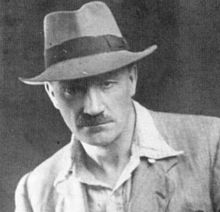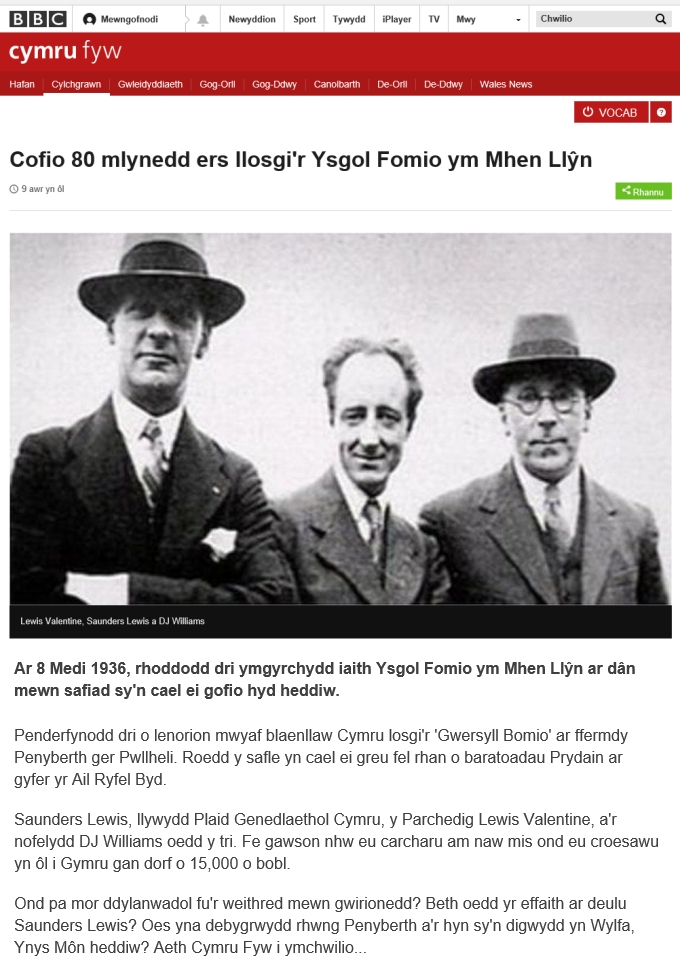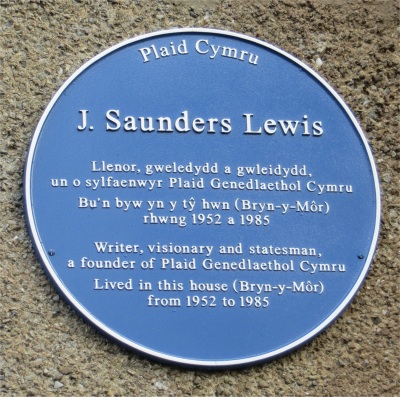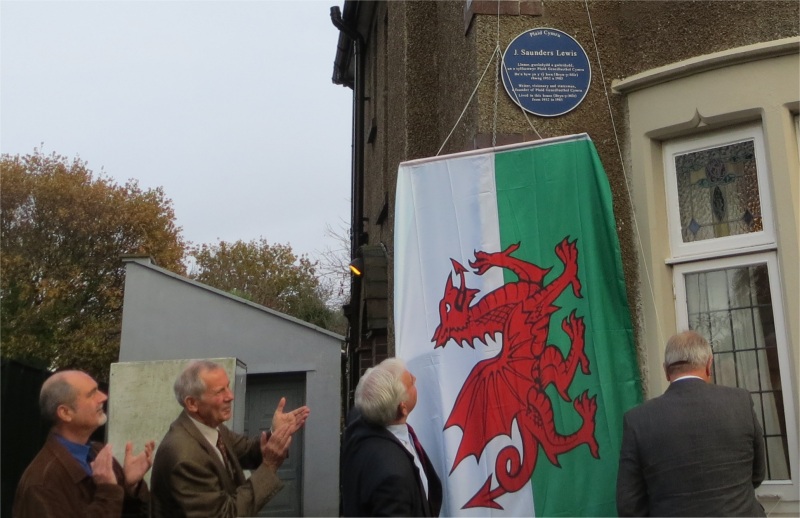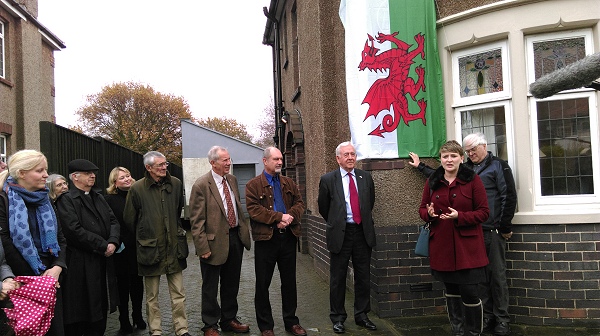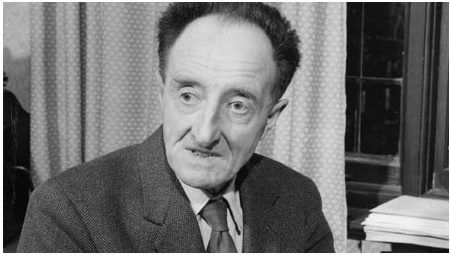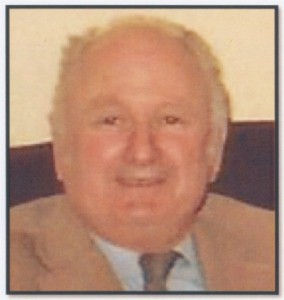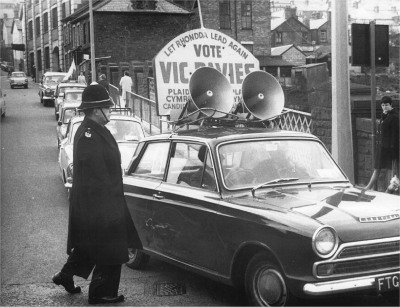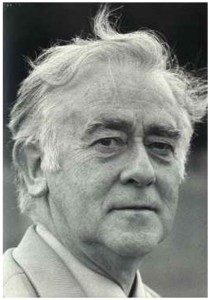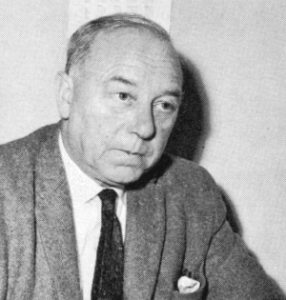 Elwyn Roberts, craig safadwy Plaid Cymru drwy ran helaeth o’r ugeinfed ganrif, oedd pwnc darlith flynyddol Cymdeithas Hanes y Blaid yn 2017. Er gwaethaf ei gefndir yn y byd bancio, bu Elwyn Roberts yn genedlaetholwr penderfynol ac ymroddedig a roddodd ei gariad i Gymru o flaen unrhyw fuddiannau personol.
Elwyn Roberts, craig safadwy Plaid Cymru drwy ran helaeth o’r ugeinfed ganrif, oedd pwnc darlith flynyddol Cymdeithas Hanes y Blaid yn 2017. Er gwaethaf ei gefndir yn y byd bancio, bu Elwyn Roberts yn genedlaetholwr penderfynol ac ymroddedig a roddodd ei gariad i Gymru o flaen unrhyw fuddiannau personol.
Disgrifiwyd ei waith dros Gymru gan gyn-arweinydd Plaid Cymru Dafydd Wigley, hanesydd Gwynn Matthews ac olynydd i Elwyn fel ysgrifennydd cyffredinol y Blaid, Dafydd Williams. Cewch ddarllen gopïau llawn o’u darlithiau a gwrando ar recordiad o’r sesiwn ym mhabell y Cymdeithasau ar faes yr Eisteddfod Genedlaethol yn Ynys Môn yn 2017.
Cofio Elwyn Roberts
Anerchiad gan Dafydd Wigley i Gymdeithas Hanes Plaid Cymru,
Eisteddfod Ynys Môn; Awst, 2017
Mae’n bleser cael agor y cyfarfod hwn, i gofio Elwyn Roberts, un o hoelion wyth y Blaid, ac mae’n addas mai yma ar faes y Brifwyl ym Môn yr ydym yn ymgasglu, gan iddo fod hefyd yn drefnydd yr Eisteddfod Genedlaethol ddwywaith. Bu’n byw am ddegawdau ym Modorgan; er bod ei wreiddiau yn Abergynolwyn, Meirionnydd. Roedd yn un â’i ddylanwad i’w deimlo ledled Cymru.
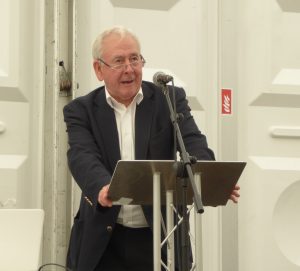 Mae gennym, fel cenedl, le nid yn unig i barchu’r goffadwriaeth Elwyn; ond hefyd i drosglwyddo’r cyfraniad a wnaed ganddo, fel ysbrydoliaeth i genhedlaeth newydd i dorchi llewys ac i gwblhau’r uchelgais oedd yn ei galon. Roedd yn genedlaetholwr ymarferol a gredai fod buddugoliaeth yn tyfu ar sail trefniadaeth wleidyddol – trwy harneisio adnoddau pobol a chyllidol i wireddu uchel amcanion ein cenedl.
Mae gennym, fel cenedl, le nid yn unig i barchu’r goffadwriaeth Elwyn; ond hefyd i drosglwyddo’r cyfraniad a wnaed ganddo, fel ysbrydoliaeth i genhedlaeth newydd i dorchi llewys ac i gwblhau’r uchelgais oedd yn ei galon. Roedd yn genedlaetholwr ymarferol a gredai fod buddugoliaeth yn tyfu ar sail trefniadaeth wleidyddol – trwy harneisio adnoddau pobol a chyllidol i wireddu uchel amcanion ein cenedl.
Bûm yn pendroni a allwn wneud cyfiawnder â’r testun, gan amau a oeddwn yn wir adnabod Elwyn Roberts. Efallai y byddai llawer o’r rhai a weithiodd gydag ef, yn cyfaddef teimladau cyffelyb: oherwydd roedd Elwyn, yn ogystal â bod yn ffigwr cenedlaethol ac yn heavyweight gwleidyddol, hefyd yn ddyn hynod breifat.
Roedd Elwyn yn un o hanner dwsin a ddylanwadodd yn sylweddol arna’ i’n bersonol, gan fy nhywys – o oed ifanc – i weithio dros y Blaid. Y dylanwadau cenedlaethol eraill oedd Gwynfor Evans a Saunders Lewis; yn lleol yng Ngwynedd – Dafydd Orwig a Wmffra Roberts; ac o fewn fy nghenhedlaeth innau, y diweddar annwyl Phil Williams. Gwerth nodi fod tri o’r rhain yn feibion i chwarelwyr llechi – Dafydd Orwig, Wmffra ac, ie, Elwyn Roberts.
Roedd Elwyn yn fab i Evan Gwernol Roberts, chwarelwr yn Abergynolwyn; ei fam, Mabel, yn brifathrawes ysgol babanod. Roedd Abergynolwyn mor bwysig iddo, fe drodd hunangofiant, yn gyfrol hanes Abergynolwyn – ‘doedd o byth yn siarad amdano fo ei hun! Felly mae’n ymhyfrydu yn y llyfr mai drwy ymdrechion y Blaid, yn y 70au y cafodd y chwarelwyr, o’r hir hwyr, hawl i iawndal llwch.
Ganwyd Elwyn ym 1905, ac roedd yn ddyn o’i genhedlaeth. Roedd cysgod y rhyfel byd cyntaf, yn drwm arno, fel oedd chwyldro Iwerddon a dirwasgiad y diwydiannau trymion. Ni chafodd addysg brifysgol – yn wir, ni hidiai lawer am yr addysg a gafodd yn ysgol Ramadeg Tywyn, a oedd yn llawer rhy Seisnig iddo.
Ar ôl gadael ysgol aeth i weithio i’r banc, ble fu am chwarter canrif, yn gyntaf yn Blaenau Ffestiniog, wedyn Bethesda – dwy gymuned chwareli – ac yna, Llandudno gan godi’n ddirprwy reolwr ac yntau prin yn drideg oed.
Gallai fod wedi esgyn yn uchel yn y byd bancio: ond roedd dyfodol Cymru’n bwysicach iddo na gyrfa a chyfoeth. Ymunodd â’r Blaid Genedlaethol yn ei dyddiau cynnar; yn un ar hugain oed, fe sefydlodd gangen Blaenau Ffestiniog – y gangen fwyaf oedd gan y Blaid drwy Gymru benbaladr. Pryd hynny, fel drwy ei yrfa, gweithiai’n ddygn yn y cefndir, i eraill gael y sylw fel ceffylau blaen.
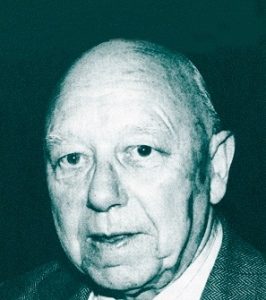 Pan ddaeth rhyfel ym 1939, gwrthododd Elwyn â listio yn y lluoedd arfog; gwnaeth hyn ar sail cenedlaetholdeb, nid heddychiaeth. Gwrthododd gydnabod hawl gwladwriaeth Lloegr I’w orchymyn i ymladd drostynt. Gofynnodd un o’r Tribiwnlys iddo “Fel Cymro ydach chi’n sefyll, ynte?” Atebodd Elwyn, gyda’i hiwmor sarrug, a’i agwedd gwbl sarhaus tuag at y sefydliad Seisnig, “Na, fel Tsieini!” Cafodd ei orfodi i weithio fel dyn dal llygod mawr yn ardal Corwen.
Pan ddaeth rhyfel ym 1939, gwrthododd Elwyn â listio yn y lluoedd arfog; gwnaeth hyn ar sail cenedlaetholdeb, nid heddychiaeth. Gwrthododd gydnabod hawl gwladwriaeth Lloegr I’w orchymyn i ymladd drostynt. Gofynnodd un o’r Tribiwnlys iddo “Fel Cymro ydach chi’n sefyll, ynte?” Atebodd Elwyn, gyda’i hiwmor sarrug, a’i agwedd gwbl sarhaus tuag at y sefydliad Seisnig, “Na, fel Tsieini!” Cafodd ei orfodi i weithio fel dyn dal llygod mawr yn ardal Corwen.
Yn ystod y rhyfel – drwy anogaeth Saunders Lewis a J.E. Daniel – sefydlwyd “Pwyllgor Diogelu Diwylliant Cymru” – yng ngeiriau Gwynfor, “y mudiad cenedlaethol pwysicaf i weithio dros Gymru yn ystod y rhyfel”. Trefnwyd ralïau ledled Cymru, a’r un mwyaf llwyddiannus oll oedd un a gynhaliwyd ym Mae Colwyn. Holodd Gwynfor pwy oedd yn gyfrifol am gael y math dorf. Cafodd ar ddeall mai clerc banc ifanc oedd wedi cyflawni’r math wyrth. Dyna ‘r tro cyntaf i Gwynfor gyfarfod Elwyn; ac fe ffurfiwyd partneriaeth a ddylanwadodd ar ddyfodol ein cenedl.
Rhaid bod y banc yn meddwl yn uchel ohono, oherwydd er gwaethaf ei genedlaetholdeb tanbaid cafodd ddychwelyd i’r banc cyn diwedd y rhyfel. Pan safodd Gwynfor dros Feirionnydd yn etholiad 1945, gwnaeth yntau gais i’r Banc i ryddhau Elwyn i weithio fel trefnydd; a chytunodd y banc i hynny! Mae Rhys Ifans, yn ei gyfrol ar Gwynfor yn sôn am Elwyn yn serennu fel asiant etholiadol – a dwi’n dyfynnu – “ar gownt ei galedwch diarhebol”.
Dychwelodd Elwyn i’r banc ar ôl yr etholiad; ond roedd ei allu trefniadol yn hysbys, a chafodd wahoddiad i weithio fel Trefnydd Eisteddfod Genedlaethol Bae Colwyn, 1947 – gan gael y banc i’w ryddhau, eto!
Cafodd ei ben-bachu eto i weithio fel trefnydd yr Eisteddfod Genedlaethol Llanrwst ym 1951. Ni ddychwelodd i’r banc wedi hynny, a chafodd ei benodi gan y Blaid, yn Drefnydd Gwynedd a Chyfarwyddwr Cyllid.
Daeth galw arall arno – iddo drefnu’r ymgyrch trawsbleidiol dros Senedd i Gymru. Pan gymerodd Elwyn drosodd, roedd y ddeiseb wedi rhedeg ers dwy flynedd ac ond ychydig gannoedd o enwau arni. Gafaelodd Elwyn yn yr awenau gyda’i unplygrwydd nodweddiadol, a llwyddodd i gynyddu nifer yr enwau i dros chwarter miliwn. Arweiniodd hyn i S.O. Davies AS gyflwyno Mesur Senedd i Gymru yn San Steffan ym 1956.
Ym 1958, Elwyn drefnodd wibdaith lwyddiannus Gwynfor Evans i’r Unol Daleithiau. Cymerodd Gwynfor ran mewn darllediad a welwyd gan ugain miliwn o bobl; cafodd groeso cynnes gan John L Lewis arweinydd Undeb Glowyr America; a threfnodd Elwyn i Gwynfor gael gwahoddiad i gyfarfod â’r Arlywydd Eisenhower – ond i Lysgenhadaeth Prydain ei rwystro.
Roedd galwadau eraill yn dal i lifo. Pan gafodd gwmni Teledu Cymru anhawster i godi arian ym 1962, at Elwyn y trowyd, a llwyddodd i godi buddsoddiadau i’r fenter, a fyddai heddiw’n cyfateb i dros £1 miliwn. Roedd codi arian yn un o gryfderau Elwyn: ef, yn ddiweddarach, berswadiodd ddyn busnes cyfoethog i gyflogi Gwynfor, fel ymgynghorydd rhwng 1970 a 1974, wedi iddo golli Caerfyrddin – a Gwynfor, i bob pwrpas, ar y clwt yn ariannol.
Tynnwyd Elwyn i mewn i geisio achub Clywedog rhag cael ei boddi, a dyfeisiodd gynllun i gannoedd brynu llathen sgwâr o dir y Cwm, a fyddai’n dyrysu Corfforaeth Birmingham – cynllun aflwyddiannus, gwaetha’r modd, oherwydd cyngor cyfreithiol diffygiol.
Ym 1964 penodwyd Elwyn yn Ysgrifennydd Cyffredinol y Blaid . Derbyniodd y swydd – a hynny ar adeg eithriadol o anodd yn hanes y Blaid – ar yr amod y cai weithio o swyddfa Bangor.
Mae’n deg cydnabod nad oedd pawb o fewn y Blaid yn gallu ymateb yn bositif i bersonoliaeth Elwyn, i’w “galedwch diarhebol” nac i’r math o genedlaetholdeb “traddodiadol” a gynrychiolai; nac i’w uniongrededd ceidwadol o safbwynt trin arian.
Mae llawer wedi ei ysgrifennu am y tensiwn rhwng Emrys Roberts, a weithredai tan 1964, fel Ysgrifennydd Cyffredinol y Blaid yn swyddfa Caerdydd, ac Elwyn Roberts, rheolwr cyllid y Blaid, a weithredai o swyddfa Bangor. Gallwn, yn bersonol, weld rhinweddau mawr yn y ddau hyn a gyfrannodd cymaint at lwyddiant y Blaid yn eu gwahanol ffyrdd.
Chwaraeodd Elwyn ran allweddol mewn nifer o ymgyrchoedd, gan gynnwys isetholiad Caerfyrddin 1966, ble bu’n cydweithio â’r Cynrychiolydd, Cyril Jones. Elwyn sicrhaodd yr adnoddau i ennill y dydd. Ac Elwyn gafodd y fraint o hysbysu Gwynfor, wrth iddo gyrraedd y cownt, ei fod wedi ennill!
Elwyn Roberts oedd Ysgrifennydd Cyffredinol Plaid Cymru drwy’r cyfnod mwyaf anhygoel yn ei hanes – isetholiadau Caerfyrddin, Rhondda Fawr ym 1967, Caerffili ym 1968, heibio miri’r arwisgo ym 1969 gan ymddeol ym 1971. Yn syth ar ôl ymddeol – fel petai heb wneud digon dros y Blaid, cymerodd Elwyn drosodd y swydd ddi-dâl fel Trysorydd Cenedlaethol y Blaid.
Yn rhinwedd y swydd, aeth ati eto i drefnu – trefnu codi arian drwy nosweithiau llawen a chyngherddau Tribannau Pop! Alla’i ddychmygu neb llai tebyg nag Elwyn, yn ei dop-cot llwyd, ei het a’i briff-ces, fel trefnydd digwyddiadau roc a rôl y 70au . Ond cododd filoedd i’r achos, ac ef greodd y sylfaen gyllidol ar gyfer etholiadau 1974 pan enillodd y Blaid dair sedd yn San Steffan.
Efallai fod trefnu ymgyrchoedd etholiadol wedi creu’r awydd ynddo i fwrw i’r dasg ei hun, oherwydd, yn syth ar ôl ymddeol cafodd ei ethol yn Gynghorydd Sir yn Ynys Môn; ac yna i Gyngor newydd Gwynedd ym 1973. Arhosodd fel cynghorydd tan 1985 – gan chwarae rhan flaenllaw i wella economi Gwynedd.
Y tro cyntaf i mi gyfarfod Elwyn oedd ym 1962. Roeddwn yn fyfyriwr ym Manceinion a newydd ymuno â’r Blaid. Yn ystod gwyliau’r coleg, mynychais gyfarfod o Gangen Caernarfon yn y People’s Café – ar y Maes yn y dref. Elwyn oedd yn siarad yno a soniais yn y gyfrol “O ddifri” sut y cerddodd i mewn yn gwbl bwrpasol a’i brief-case yn orlawn. Daeth nid i fân-drafod, llai fyth i gymdeithasu, ond yn hytrach i’n cyfarwyddo. Fo oedd yn gosod yr agenda a’r blaenoriaethau, fel ryw Gomisar sofietaidd.
Yn fuan wedyn, galwais heibio ei swyddfa ym Mangor ac roedd hynny’n brofiad. Trefnai’r gwaith fel peiriant ac roedd yn feistr corn ar bawb a phopeth – fel dwi’n sicr y gallai Nans Couch – Nans Gruffydd fel yr oedd pryd hynny – dystiolaethu o brofiad personol.
Doedd gan Elwyn fawr o amser i ffyliaid – a dangosai hynny’n weddol amlwg. Ond pe gwelai fod gan rywun gyfraniad i wneud i’r mudiad cenedlaethol, doedd dim yn ormod o drafferth iddo. Penderfynodd yn weddol gynnar fod gennyf innau rywbeth i’w gynnig – ac fe gymerodd ddiddordeb mawr ym mhopeth a wnawn dros gyfnod o flynyddoedd.
Fo oedd tu cefn i’m mhenodi i weithio fel trefnydd etholaeth Arfon o Fehefin hyd Hydref 1964, ar ôl i mi raddio a chyn dechrau gweithio, cyfnod oedd yn arwain at etholiad cyffredinol 1964. Roedd wedi awgrymu, yn gynharach, y dylwn – ar ôl graddio – fynd i chwilio am waith i gymoedd y De i ddod i nabod Cymru’n well. Pan ddeallodd mod i am fynd i weithio efo cwmni Ford yn Dagenham, fe ffieiddiodd am sbel – roedd wedi digio efo fi oherwydd, mae’n debyg, y tybiodd y byddwn innau’n diflannu o’r Blaid ac o wleidyddiaeth Cymru, fel bu hanes cymaint o fechgyn ifanc pryd hynny.
Cadarnhawyd ei ofnau ar ôl iddo ef a Wmffra Roberts geisio a’m mherswadio i sefyll yn Arfon yn etholiad Mawrth 1966; a minnau’n gwrthod yn fflat ystyried y math beth – wedi’r cyfan roeddwn ond dwy ar hugain oed, ac roedd llawer yn rhy gynnar. Ond roedd Elwyn wedi plannu’r syniad yn fy mhen y dylwn baratoi ar gyfer y math bosibilrwydd yn y dyfodol.
Pan welais Elwyn yng Nghaerfyrddin, y Sadwrn olaf cyn yr isetholiad 66, roedd ei agwedd tuag ataf yn dal yn sarrug, a dweud y lleiaf. Anfonodd fi allan i ganfasio heb fawr ddim sgwrs – roeddwn yn y “bad books” go iawn. Ond pan ddychwelais i adrodd am drwch y gefnogaeth yn y dre, roedd wedi meirioli. Dwedodd mai dyna’r ymateb drwy’r etholaeth – ac mewn llais isel, rhag i neb glywed, sibrydodd “Dwi’n credu fod Gwynfor am ennill”.
Yn sgil yr isetholiad, aeth nifer ohonom – Phil Williams, Dafydd Williams, Eurfyl ap Gwilym, Gareth Morgan Jones, Rod Evans ac eraill – ati i ffurfio Grŵp Ymchwil y Blaid – i helpu Gwynfor efo agweddau o’i waith seneddol, ac i baratoi Cynllun Economaidd i Gymru. Roedd hynny’n plesio Elwyn yn ddirfawr – a darparodd heb berswâd, gyllid o ryw hanner can punt y mis, i ni allu llogi swyddfa fechan iawn a chyflogi teipydd rhan amser.
O fod wedi methu a’m cael i sefyll yn Arfon, Elwyn berswadiodd Bwyllgor Rhanbarth Meirion i’m gwahodd i sefyll yno yn etholiad 1970, er fy mod yn byw yn Llundain ac yn gweithio i gwmni Mars yn Slough. Rhoddodd Elwyn gefnogaeth ymarferol i mi o ran adnoddau’r Blaid yn ganolog.
Erbyn 1972, roeddwn wedi dychwelyd i fyw yng Nghymru, yn gweithio efo cwmni Hoover ym Merthyr ac wedi fy ethol i Gyngor Merthyr – roedd fel pe bae cynllun cyfnod hir Elwyn ar fy nghyfer, o’r diwedd yn symud ymlaen fel yr oedd wedi bwriadu. Pan gefais f’ethol dros Arfon, cefais eto bob cefnogaeth ganddo, fel y cefais pan sefais i olynu Gwynfor fel Llywydd.
Er bod Elwyn yn gymaint o gefn i mi, ac yn f’ystyried yn dipyn o protégé iddo, prin allwn ddeud fy mod yn ei wir adnabod – dim ond unwaith bûm heibio ei gartref ym Modorgan – a hynny i bigo ryw bapurau – a phrin erioed y cefais unrhyw sgwrs â’i wraig Nansi. Un felly oedd Elwyn; ac doedd dim dewis ond ei dderbyn fel yr oedd – oherwydd fyddai dim byd yn ei newid. Roedd fel craig yr oesoedd, yn gyson, yn gadarn, yn unplyg ac yn gwbl ymroddedig i Gymru.
Mae’n dda ein bod ni heddiw yn ei gofio, oherwydd mae gan y Blaid a’r genedl lawer i ddiolch iddo: Elwyn Roberts, “Y graig safadwy drwy dymhestloedd”; y math graig sydd o’r golwg dan wyneb y tir, ond oedd mor hanfodol os oeddem am adeiladu dyfodol cenedl ar seiliau cadarn. Diolch amdano a diolch am wrando.
‘Elwyn y Dyn’
Atgofion Gwynn Matthews
Diolch am y gwahoddiad i rannu fy adnabyddiaeth o Elwyn, a diolch o galon i Dafydd Wigley am y portread arbennig gawsom ni. Pwy all ychwanegu i’r pictiwr hwnnw o Elwyn fel ffigwr cenedlaethol? Dwi ddim yn mynd i geisio gwneud hynny – beth rwy’n mynd i’w wneud yw sôn am Elwyn y dyn – y dyn y mae cymaint o bobl wedi ei gael yn anodd i fynd o dan ei groen.
Gwnes i gyfarfod ag Elwyn gyntaf yn 1961. Roeddwn i’n fachgen ysgol ar y pryd a doedd amgylchiadau’r cyfarfod ddim gyda’r hapusaf, oherwydd gwŷs ges i ymddangos ger ei fron mewn Pwyllgor Rhanbarth!
Mi oeddwn i wedi sefydlu cangen ysgol o’r Blaid yn Ysgol Ramadeg Dinbych ddechrau’r chwedegau. Byddem ni’n cyfarfod yn yr awr ginio yn yr ysgol mewn ystafelloedd gwahanol yn ddiarwybod i’r staff. Roedd hynny’n bosibl oherwydd bod gen i fathodyn yn dweud ‘Prefect’ ( a hawl felly i adael disgyblion i mewn i’r adeilad) – ond y drwg oedd bod athrawon yn gallu dod heibio, agor y drws a gofyn “What’s going on here, then?”. Os oedd yn Sais, roeddwn i’n gallu dweud, “Oh, it’s the Welsh Society, sir”. Ac roedd hynny’n iawn. Un tro ddaru’r athro ysgrythur ddod a gofyn a oedden ni’n cynnal cyfarfod gweddi – ac mae’n flin gen i gyfaddef i mi ateb fy mod!
Y ffaith yw, roedd yna berygl cael ein dal, ond maes o law fe gawson ni ddefnyddio Swyddfa’r Blaid yn y dre. Ond roedd rhywun wedi achwyn fod plant ysgol yn mynd a dod o’r swyddfa ac yn cadw reiat. A felly dyma fi’n cael gwŷs i fynd i’r Pwyllgor Rhanbarth a rhoi cyfrif amdanaf fy hun a’m cyd-ddisgyblion, o flaen neb llai na Mr Elwyn Roberts!
I’r rhai ohonoch oedd wedi adnabod Elwyn, gallwch chi ddychmygu sut deimlad oedd ymddangos o’i flaen! Roeddwn i yn deall – allwch ddim wafflo efo hwn. Ond y gwir yw mi ddaru o ddod allan o’n plaid ni, a dweud bod perffaith ryddid i ni ddefnyddio’r swyddfa o hynny ymlaen.
Ychydig nes ymlaen, yn 1968, fel y dywedodd Dafydd Williams, mi ges i fy mhenodi ar staff y Blaid. Fe ges i gyfweliad ym Mhwllheli yn dilyn cyfarfod mabwysiadu Robyn Lewis. Dyma Elwyn yn dod ata’i ar y diwedd, – “Reit” medde fo, “dwi eisiau i chi helpu fi lenwi bŵt y car efo’r holl daflenni yma.” Ac fel oeddwn i’n llenwi’r bŵt, roedd o yn fy holi. A phan oeddwn i wedi llenwi’r bŵt, dyma fo’n dweud, ” ‘Dech chi wedi cael y swydd”. Cyfweliad byrraf fy mywyd.
Fel mae Dafydd Wigley wedi dweud, dyn preifat oedd o. A byddwn i’n dweud ei fod yn ddyn swil mewn gwirionedd. Ac efallai, roedd ganddo ryw ffasâd sydd gan bobl swil yn aml sy’n gwneud i chi feddwl eu bod nhw’n llai cynnes nag ydyn nhw. Yn y bôn, mi roedd Elwyn yn ddyn cynnes.
Ac fel yr awgrymodd Dafydd Wigley, pan gafodd o hamdden, ddaru o ddim sgwennu amdano’i hun ond sgwennu am ei fro – sgwennu am yr ardal roddodd ei werthoedd iddo. [Wrth Odre Cadair Idris] Yno mae o’n sôn am ei blentyndod, ac mae un frawddeg sy’n dipyn o syndod. Sôn mae o am ei ysgol, ac am athro yr oedd ganddo dipyn o feddwl ohono, Mr Fielding. O’r Iseldiroedd y deuai teulu Mr Fielding, ond roedd o’n medru Cymraeg.
A dyma’r frawddeg oedd yn fy nharo fel un eithriadol: “Cofiaf rai o’r gwersi mewn rhifyddeg, er bod yn gas gen i’r pwnc.” Meddai hwn, y consuriwr ffigyrau! Y dyn oedd yn medru cael arian o’r awel – ac roedd yn gas ganddo rifyddeg! Dywed fod Cymraeg a hanes lleol yn fwy at ei ddant o lawer. Ie, brogarwch oedd y sail i wladgarwch Elwyn, ac fel mae Dafydd Wigley wedi’i ddisgrifio, gwladgarwch dipyn bach yn hen-ffasiwn. A baswn i’n cytuno – gwerthoedd y Gymru Gymraeg Anghydffurfiol oedd ganddo.
Rwy’n cofio mewn un gynhadledd, ddechrau’r saithdegau, fod un o ganghennau’r Rhondda wedi gyrru cynnig gerbron am i’r Blaid sefydlu clybiau yfed. Dim ond dau gerdyn oedd wedi dod i fyny – y cynigydd a’r eilydd. A dyma Elwyn yn dod ata’i a dweud, “Gwynn, mae rhaid i chi siarad!” Oeddwn i’n ddim wedi bwriadu siarad ond meddai, “Mae’n rhaid i chi siarad yn erbyn hwn! Bobol bach, beth ydech chi’n meddwl byddai cefnogwyr Goronwy Roberts, y dirwestwr mawr, yn ei ddweud yn Arfon pe baem ni’n pasio’r cynnig yma?” A wyddoch chi, roedd rhaid i mi fynd, ar ddau funud o rybudd, a siarad yn erbyn sefydlu clybiau yfed. Methu ddaru’r cynnig, ond nid oherwydd unrhyw beth ddywedais i!
Eto, rhan o’i werthoedd Anghydffurfiol oedd ei heddychiaeth. Rwy’n gwybod mai fel cenedlaetholwr y safodd o yn erbyn gwasanaeth milwrol, ond fe allai fod wedi gwneud hynny fel heddychwr hefyd.
Rwy’n cofio un achlysur adeg yr Arwisgo pan oedd y diweddar ROF Wynne (Garthewin) wedi bod yn mynegi teimladau honedig amwys ynglŷn â’r defnydd o drais mewn ymgyrchoedd dros ryddid cenedlaethol. Gwnaeth aelod weddol flaenllaw o’r Blaid amddiffyn ROF Wynne. Fe wylltiodd Elwyn: “Fo! Fo o bawb! Tase fo’n gweld gwn iawn, base fo’n gwneud yn ‘i glôs!”
Roedd Elwyn yn medru gwylltio, rhaid cyfaddef hynny. Rwy’n cofio dod o un Eisteddfod lle roedd o wedi ffromi gydag un o weision ffyddlonaf y Blaid, Nans Jones. (Nans Jones, rhaid dweud, oedd yn tramgwyddo Elwyn yn amlach na neb arall ar y staff!) Pan aeth Elwyn i stondin Y Ddraig Goch (yn y cyfnod pan na nad oedd gan bleidiau gwleidyddol hawl i gael stondin ar y Maes) beth welai o dan y bwrdd ond copïau o lyfr garddio JE Jones. Beth fyddai Nans yn ei wneud pan welai rywun oedd yn adnabod JE yn dod i mewn i’r babell ond cynnig y llyfr garddio iddyn nhw – yn lle cynnig pamffledi’r Blaid!! “A beth bynnag”, meddai Elwyn, “pryd gafodd JE amser i arddio?”
Bu Elwyn yn drefnydd yr Eisteddfod Genedlaethol ddwywaith. [Eisteddfod Llanrwst, 1951, oedd un o’r rhain.] Un dydd Llun, trefnodd fod Cynan yn dod i Lanrwst i archwilio Cylch yr Orsedd, achos yn ystod yr wythnos flaenorol roedd penseiri wedi bod wrthi yn gosod y meini yn eu trefn (yn y dyddiau cyn bod rhai plastig, meini go iawn felly). Ond dros y penwythnos, roedd y ffarmwr wedi gadael i’r bustych ddod ar y safle i bori. A dyma eiriau Elwyn, “Wyddoch chi beth, roedd y bustych yn codi’u cynffonau yn erbyn y meini – ac aeth Cynan yn wallgof! ‘Ydach chi ddim yn sylweddoli’, meddai Cynan, ‘fod y meini hyn yn gysegredig?'”. Roedd yn amlwg o wyneb Elwyn wrth iddo ddweud yr hanes fod ganddo syniad o’r absẃrd.
Un diwrnod roedden ni’n trafod ceir. Ymhlith y swyddi bu Elwyn yn eu gwneud oedd gwerthu ceir ail-law. Un da dwi’n siŵr – roedd ganddo’r ddawn i wahanu pobl â’u harian – megis y gwnaeth flynyddoedd yn ddiweddarach fel Trysorydd y Blaid! Gwerthai geir dros ddyn busnes o Fae Colwyn, Mr Bill Knowles. Roedd Bill Knowles yn dipyn o gymeriad, yn Dori amlwg, a daeth yn Faer Bae Colwyn. (Fel mae’n digwydd, yn ystod y chwedegau, ddaru o droi’n Bleidiwr, a bu’n Gadeirydd Pwyllgor Rhanbarth Gorllewin Dinbych.) A dod yn ôl at ein sgwrs, dyma Elwyn yn dweud, “Gwynn, os byth y bydd rheiddiadur y car yn gollwng dŵr, dwi’n gwybod sut i’w setlo fo. Mae isio tywallt paced o bupur i mewn iddo fo, a gwneith hynny i selio fo – rhywbeth ddysgodd Bill Knowles i mi!” Nid oes gan werthwyr ceir ail-law enw da bob amser, ond pe baech chi’n gofyn i mi a fyddwn i’n prynu car ail-law gan Elwyn mi fyddwn yn ateb, “Baswn, o baswn!”
Roedd o weithiau rwy’n meddwl yn or-wyliadwrus. Dwy enghraifft fach. Roedd grŵp ymchwil, dan Dewi Watcyn Powell rwy’n credu, wedi paratoi cyfansoddiad i’r Gymru rydd (a chafwyd cynhadledd yn y Deml Heddwch yng Nghaerdydd i’w dderbyn). Un pwnt a godwyd oedd beth i alw cynrychiolydd y Goron. Roedd ‘Viceroy’ allan o’r cwestiwn, ac roedd teimlad fod ‘Governor-General’ yn rhy imperialaidd. Dyma nhw’n penderfynu ei alw’n ‘Dinesydd Cyntaf’, ‘First Citizen’. Roedd Elwyn yn teimlo fod hyn yn rhy elitaidd i’r Blaid.
“Fedrwch chi’n feddwl, Gwynn, am enw arall fel pennaeth rhywbeth?”
“Wel, mae pennaeth seremonïol Prifysgol yn cael ei alw’n Ganghellor,” meddwn i.
” O reit dda, ia, rwy’n lico hynny – Canghellor Cymru.”
“O feddwl am y peth”, medde fi, “dyna yw teitl prif weinidog yr Almaen.”
“Bobol bach – fedrwn ni ddim cael hynny! Meddyliwch beth fyddai’r Daily Post yn ei wneud o ‘r peth!”
A ‘First Citizen’ oedd hi!
Rwy’n cofio un diwrnod, roedden ni’n trafod bywyd teuluol, am wn i, a dyma fo’n darganfod mai eglwyswr oeddwn i. Ac roedd o eisiau egluro rhywbeth i mi.
Yr adeg honno, roedd pob plaid wleidyddol yn cael gwahoddiad i fynd i ryw addoldy ar y Sul o flaen eu cynhadledd. Roedd yn cael ei drefnu ymlaen llaw, wrth gwrs, pwy fyddai’n rhoi’r gwahoddiad.
“Mae’n rhaid i mi gyfaddef nad ydw’i erioed wedi gofyn i ni gael gwahoddiad i fynd i eglwys, ac mi ddylwn i egluro paham. Y rheswm yw bod gweddi dros y Frenhines yn rhan o wasanaeth yr eglwys, ac mae arna’i ofn i ryw benboethyn gerdded allan o’r gwasanaeth – a beth fyddai’r papurau yn ei wneud o hynny?”
Ie, gorwyliadwrus, weithiau, efallai.
Ond beth yw’r argraffiadau ohono sy’n parhau? Disgyblaeth, dycnwch a diffuantrwydd.
Disgyblaeth – disgyblaeth bersonol, disgyblaeth mewn gwaith. Os oeddech chi yn gwneud eich rhan, fyddai Elwyn ddim yn brin o’ch gwerthfawrogi. Ond os cafodd siom, roedd yn gadael i chi wybod! Gwnes i ei siomi unwaith – mi fethais fy mhrawf gyrru. “Damia chi!”.
Dycnwch – dyfalbarhad yn wyneb anawsterau a siom. Cofiaf Haf 1969 ( haf yr Arwisgiad) – roedd yn gyfnod anodd enbyd – ac un o brif bryderon Elwyn oedd y byddai’r Raffl Haf yn methu! Roedd y Raffl Haf yn bwysig – dyna le oedd ein cyflogau yn dod ohono – ond cadw ei nerf wnaeth Elwyn.
Yn olaf, ac yn flaenaf, diffuantrwydd. Dyn cywir. Rwyf wedi gweithio i nifer o bobl, rhai ohonynt yn bobl dda iawn, ond mae fy mharch mwyaf, ar sail ei ymroddiad diarbed, i Elwyn.
Cofio Elwyn Roberts
Teyrnged gan Dafydd Williams
Des i nabod Elwyn Roberts yn dda ar ôl ymuno â staff Plaid Cymru – am flwyddyn i fod – bron hanner can mlynedd yn ôl, ym Mis Rhagfyr 1967. Roeddwn wedi cyfarfod ag ef cyn hynny mewn ysgolion haf a’r Gynhadledd, a hefyd ar ddiwrnod cofiadwy yn ystod Isetholiad Caerfyrddin ym 1966.
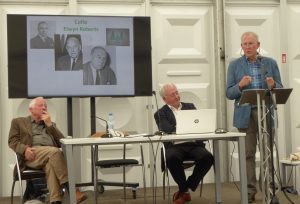 Ond yn Swyddfa’r Blaid, Pendre, Bangor y cefais weld y dyn ei hun wrth ei waith bob dydd. Byddai yno’n ddi-ffael ben bore, ac yn dal ati fel arfer ar ôl i’r cloc ar y wal yn dweud wrthon ni fynd adre.
Ond yn Swyddfa’r Blaid, Pendre, Bangor y cefais weld y dyn ei hun wrth ei waith bob dydd. Byddai yno’n ddi-ffael ben bore, ac yn dal ati fel arfer ar ôl i’r cloc ar y wal yn dweud wrthon ni fynd adre.
Roedd hi’n gyfnod cyffrous. Yn dilyn isetholiadau Caerfyrddin a Gorllewin y Rhondda’r flwyddyn wedyn, a Gwynfor yn y Senedd, roedd aelodaeth ar i fyny, ac angen sianelu’r tyfiant hwnnw’n batrwm effeithiol o ganghennau a rhanbarthau ar draws y wlad. Fel Ysgrifennydd Cyffredinol a Phrif Drefnydd – dyna oedd teitl ei swydd – byddai Elwyn Roberts yn delio â’r holl broblemau a ddaeth yn sgil y tyfiant hwnnw, a’r llu o ymwelwyr a fyddai’n galw heibio.
Buan iawn ddes i sylweddoli bod angen rhywun o ddawn, profiad a chymeriad arbennig iawn i fod wrth y llyw. Rhywun fyddai’n cadw’r llong i fynd yn ei blaen ar gwrs diwyro, drwy hindda a drycin. A heb os, Elwyn Roberts oedd y gŵr hwnnw.
Yn y cefndir byddai’n gweithredu wrth gwrs. Er ei fod yn llawn gallu annerch cynhadledd neu gyngor pe bai rhaid, nid y llwyfan cyhoeddus oedd ei gynefin naturiol.
Mae gen i yn fy meddwl lun byw iawn ohono, wrth ei ddesg yn ei siaced – anaml y byddai’n diosg hwnnw – a hances teidi yn y boced top. Ac yno’n gweithio gydag ef roedd merch ifanc o Ben Llŷn, Nans Gruffydd – Nans Couch erbyn hyn. Mae Nans yn methu bod gyda ni heddiw oherwydd galwadau teuluol, ond rwy’n ddiolchgar iawn iddi am ei hatgofion.
Fel hyn mae hi’n cofio amdano: “Fo yn sicr oedd yn o fy arwyr yn y Blaid a braint oedd cydweithio efo fo. Dyn yr ail filltir oedd Elwyn – gweithiwr diflino a roes ei yrfa yn y banc o’r neilltu er mwyn gwasanaethu ei genedl. Ef fu’r dylanwad mwyaf arnaf … Roedd gweithio efo Elwyn yn well nag unrhyw goleg”.
Roedd Elwyn yn hoff o’i de. Bron bob awr yn y prynhawn, byddai’r ddau ohonon ni’n clywed llais yn deisyfu o’r stafell gefn: “Oes paned dwym yn y tebot?” A – cyfaddefiad yn dod! – Nans fyddai’n rhoi ei gwaith o’r neilltu i ddarparu pot o de newydd. 1967 oedd hynny, cofiwch!
Wrth gwrs, yn bell cyn i Nans na minnau ddod i’r golwg, roedd Elwyn eisoes wedi rhoi degawdau o’i fywyd i Gymru a’r Blaid – a hynny ar adegau anodd iawn. Meddyliwch am hyn:
- Elwyn yn drefnydd etholiad i Gwynfor Evans ym Meirionnydd yn 1945, yn ennill clod am “ei galedwch diarhebol” fel asiant yn ôl yr awdur Rhys Evans – gyda llaw, yn ystod yr ymgyrch honno, trefnodd gyfarfod cyhoeddus o flaen cofgolofn Hedd Wyn yn Nhrawsfynydd – am 11:30pm y nos!
- Ddeng mlynedd wedyn yn 1955 – cael ei ryddhau gan y Blaid i achub ymgyrch Senedd i Gymru, a llwyddo hefyd.
- Neu hyn – yn 1961, codi £62,525 i lansio cwmni Teledu Cymru.
Ac alla’i byth ag olrhain ei holl waith yn codi arian i gadw Plaid Cymru rhag methdalu – dro ar ôl tro, a thrwy bob dull a modd. Dim syndod iddo gael ei ddyfynu 45 o weithiau yn llyfr Rhys Evans yn ei gofiant am Gwynfor Evans.
Yn 1971, yn annisgwyl iawn, fe ddes i’n olynydd i’r gŵr anhygoel hwn, hynny ar ôl wâc ar y prom yn Aberystwyth gyda Gwynfor, ond stori arall yw honno! Sut yn y byd oedd llenwi ei sgidie fe? Rown i’n gwybod yn iawn na allaf byth ei efelychu.
Ond yn ffodus i mi, os oedd Elwyn wedi ymddeol o fod yn Ysgrifennydd Cyffredinol, roedd ei gyfraniad i Blaid Cymru yn bell, bell o fod drosodd. Yn yr un flwyddyn, fe ddaeth yn Drysorydd mewn enw – swydd yr oedd mewn gwirionedd yn cyflawni ers blynyddoedd. Ac – anodd falle i rai ohonoch chi gredu hyn – diolch i’w waith caib a rhaw mewn hinsawdd wleidyddol fwy ffafriol, fe wellodd sefyllfa ariannol y Blaid yn sylweddol.
Ac ymlaen ag ef i gyflawni gyrfa newydd fel aelod o Gyngor Sir Gwynedd gan gynrychioli Bodorgan yma yn Sir Fôn, a dal nifer o swyddi cyhoeddus – ar Gorfforaeth Ddatblygu Cymru ac Awdurdod Iechyd Gwynedd yn eu plith.
Roeddwn i’n ddigon ffodus i ymweld nifer o weithiau â’i gartref – byngalo ar gornel heol fach wledig ym mhentref Bodorgan o’r enw Peniarth, gyda’i do wedi’i growtio yn steil Ynys Môn (clywais lawer am ‘grouting’!) a’r tu fewn yn bictiwr. Bob tro fe gawn groeso cynnes a charedig gan Elwyn a’i wraig Nansi – trist meddwl bod Elwyn yn treulio blynyddoedd olaf ei fywyd heb ei chwmni afieithus hi.
Clywais am farwolaeth Elwyn Roberts mewn sgwrs ffôn â Gwerfyl yn y Swddfa Ganol y diwrnod cyn ei gladdu, a minnau yn yr Alban gyda’m rhieni ac yn methu mynychu ei angladd. Roedd yn gysur ymweld â’i fedd yn eglwys Abergynolwyn rai misoedd wedyn.
Ga’i felly derfynu gydag apêl. Mae gwir angen croniclo hanes bywyd yr arwr unigryw hwn – y bancwr droes yn drefnydd mudiad cenedlaethol. Mae’r deunydd crai i’w gael – yn y Llyfrgell Genedlaethol, mae cyfrolau o waith papur yn ei gasgliad, a digon o inc coch bid siŵr! Mae’n stori werth ei hadrodd – testun teilwng iawn o PhD a llyfr wedyn. Beth amdani, haneswyr Cymru?
I’m cenhedlaeth i, ac i’r to iau, mae hanes Elwyn Roberts yn ysbrydoliaeth – ac yn sialens. Mae llwyddiant Plaid Cymru heddiw, waeth beth fo’r anawsterau, yn deillio o’r hadau a blannwyd gan Elwyn a’i gyfoedion.
Rhyfedd meddwl ei fod wedi ffarwelio â ni bron ddegawd cyn ennill y frwydr i sefydlu cynulliad cenedlaethol. Byddai fe wedi bod wrth ei fodd – a byddai wedi rhoi rhywbeth am gael profi a chyfranogi o’r llwyddiant hwnnw. Diolch am ei fywyd, mae’n haeddu pob anrhydedd.

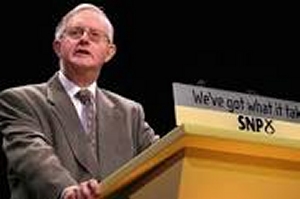 Roedd Gordon yn gyfaill mawr i Gymru ac yn genedlaetholwr i’r carn.
Roedd Gordon yn gyfaill mawr i Gymru ac yn genedlaetholwr i’r carn.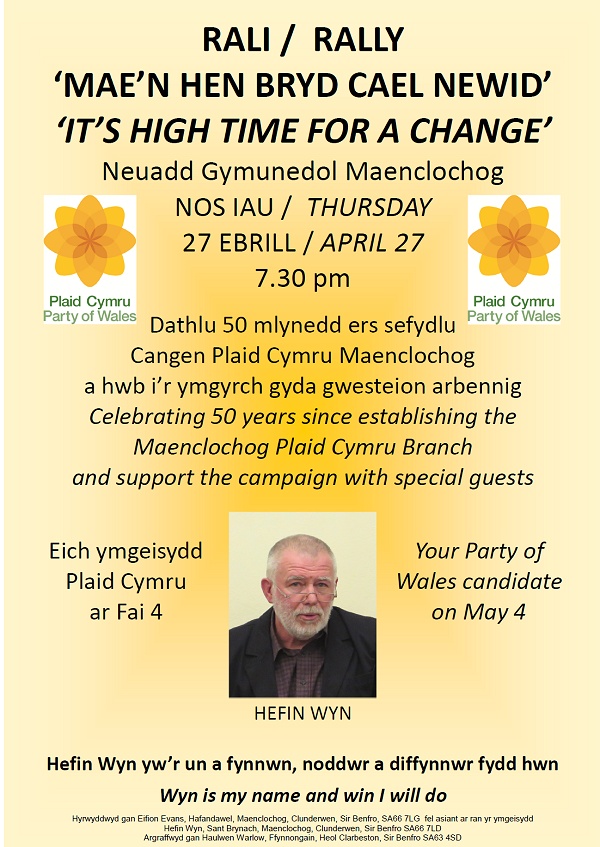 Bydd y noson yn dwyn i gof y dyddiau hynny, ond hefyd yn edrych ymlaen at y sialensiau newydd sy’n wynebu Sir Benfro a Chymru yn ystod yr 21ain ganrif, meddai Hefin Wyn, a fydd yn ymladd ar gyfer sedd ar y cyngor sir yn yr etholiadau ar 4 Mai.
Bydd y noson yn dwyn i gof y dyddiau hynny, ond hefyd yn edrych ymlaen at y sialensiau newydd sy’n wynebu Sir Benfro a Chymru yn ystod yr 21ain ganrif, meddai Hefin Wyn, a fydd yn ymladd ar gyfer sedd ar y cyngor sir yn yr etholiadau ar 4 Mai.